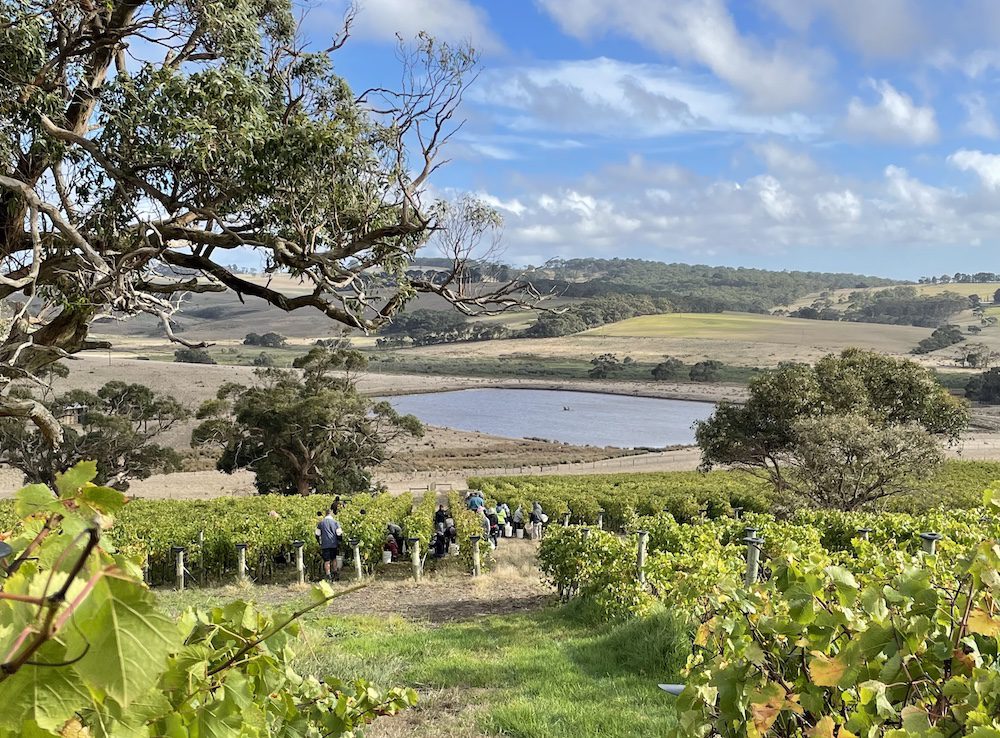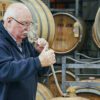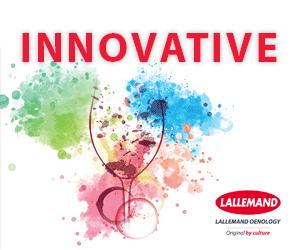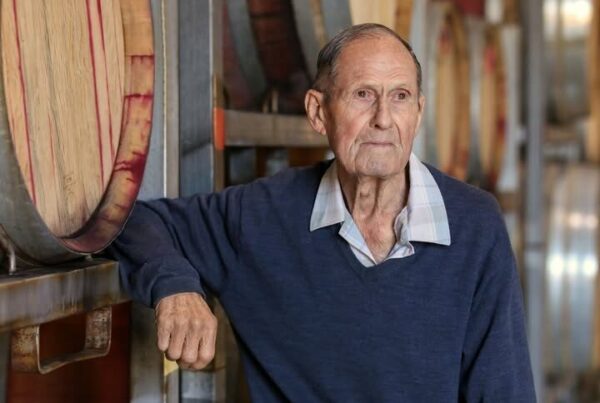
The CSIRO has sort of announced the redundancy of at least three senior scientists, experts and researchers in grapevine genetics and physiology at the Adelaide CSIRO offices located at the Waite Research Institute.
A further number of technical support staff and rumour has it more to come, have been or will be laid off in parallel.
In all 12 contract positions and 12 permanent staff are to be terminated.
The Adelaide Advertiser quoted that CSIRO’s excuse for the slash and burn of viticultural staff is the reduced funding from Wine Australia due to the China sales impact on levy revenue and the new focus of Wine Australia on “shorter term impact return on investment”.
In the mix is the new corporate demand from CSIRO, that for them to support a project it requires at least 70 percent of the funding to come from the industry benefitting from the research.
That’s a formula for making the successful large industries ever more successful and blunting the advancement of emerging and struggling industries.
In the Australian wine community’s case, why not kick it while it is reeling from unearned Chinese retribution?
According to The Advertiser article, “The cuts impact research into berry development, grapevine function, grapevine physiology and rootstock breeding.”
Those are the very areas of research that the Australian wine community needs to adapt its vineyards to climate change and to improve wine quality in a competitive global market.
I am angry!
I am angry at the CSIRO for being so arbitrarily callous, decimating the viticultural research team at the Waite, in one stroke making redundant the Australian wine community’s most important resource of vine genetics and vine physiological research.
I am angry with Wine Australia for not prioritising vine genetic and physiological work and failing to persuade CSIRO not to take this precipitous action.
Wine Australia surely understands that we need the capacity to breed new disease resistant vines and better rootstocks.
They also surely understand that research to further understand the physiology of grape ripening is necessary to enable better control over the ripening time in a warming climate.
Why then the focus on “shorter term impact”, as claimed, when the pressing need is to answer the big questions posed by climate change requiring a longer-term focus?
This outcome also points to the paucity of wine community people on the Wine Australia board.
The defence of creating influence across federal and state statutory organisations by having overlapping board members on the Wine Australia board at the expense of industry people has been put to the test with the CSIRO decision and has failed, probably for good governance reasons.
I am angry at this generation of Australian grape and wine producers for not grasping the nettle of levy reform and for allowing the levy revenue and research capacity to decay.
We are the first generation of Australian vignerons to fail to meet the needs of our research and education institutions and in doing so we are limiting our future.
Meanwhile our overseas competitors are spending more on research of vine genetics and vine physiology in recognition of the priority of these disciplines in growing vines that can weather the effects of climate change, meet the low chemical input demands of society and make better wines.
I am angry at my impotence to influence these outcomes; the immediate appeasement of industry factions is not more important than our future.
Anger doesn’t help!
What is required is the cool and clear-headed advancement of a research and promotion levy reform and levy increase strategy, to more equably distribute the levy load, to restore some research investment capability and to futureproof the levy against the loss of value of money over time.
We will not retrieve the treasure trove of viticultural expertise and experience that CSIRO are currently determinably dismantling.
I return to the levy reform proposal I enunciated in December 2021 in WBM.
In a nutshell the proposal was for a 1.6 percent levy based on the five-year average value of the Australian grape crop, divided between the inland average grape price and the average price of the cooler coastal region fruit.
In 2021 this would have raised a levy of $20.64 million, divided two-thirds for research ($13.8 million) and one-third for the promotion of Australian wine ($6.9 million). This compares with the levy under the current system based on tonnes, of a total of $19.01 million, $12.1 million for research and $6.9 million for promotion.
The 14 percent increase in research levy would restore some of the very significant loss of spending power over the past 18 years since the last levy increase.
Currently, based on tonnes, the inland producers pay 71 percent of the levy and the cooler coastal producers pay 29 percent.
The value-based levy proposal raises 54.5 percent of the levy from the cooler coastal producers and 45.5 percent from the inland producers, restoring equity.
A further incentive for a change from volume to value is that in the China tariff punishment aftermath, most of the significant amount of crop left unharvested in 2022 was in inland vineyards.
This combined with low prices on offer for those grapes in the future and the high demand for other irrigated food stuffs, almost assures a structural adjustment and Australia’s grape crop is likely to fall in volume.
This would further reduce the research levy.
The decrease in the value of the Australian grape crop will be a lot less than the decrease in volume.
A value-based levy is insulated against the loss of value of money over time.
This change needs to happen rapidly and decisively to avoid further erosion of the globally envied research and education capacity we have at the AWRI and in our universities, following the path of the disastrous CSIRO decision.
I am hoping Adelaide University and the AWRI can find roles for Drs. Ian Dry, Chris Davies and Mandy Walker, those researchers retrenched by CSIRO, put back to work mentoring the next generation of researchers in vine genetics and physiology.
Between them, they represent irreplaceable decades of experience and achievement.
Ironically the University of Adelaide and the AWRI are planning a radical research vineyard and teaching and research winery expansion to primarily explore among other things, the genetic and physiological control of the grape vine to reliably produce better quality wines in a warming climate.
On the one hand our major research and education institutions are looking to a future defined by climate change, relying on research of grape vine genetics and physiology to provide amelioration and on the other hand CSIRO and Wine Australia have combined to decimate the existing capacity in those valuable disciplines.
We need to do better than that.
The Australian wine community deserves better than that but only if it gets on with the type of levy reform proposed here.













Hot tip: Wine Australia were not significantly cutting funding, it was a convenient excuse for CSIRO. The viti staff at CSIRO who lost their jobs know that too, but it doesn’t make the cut hurt any less. Unfortunately as a government agency, Wine Australia can not go on a public tic for tac in the media forum with CSIRO so only one side of the story is published.
I was also shocked and disappointed to hear the extreme cuts to staffing of the CSIRO Wine Science team at Urrbrae. It reminds me of similar cuts made to the Climate Science Group when the current CEO Larry Marshall was first appointed. Those cuts were made on the grounds that the problem was proven and later partially reversed after acknowledging his mistake, which still has a lasting impact.
As a former member of the Grape & Wine group (retired in 2005), I’am familiar with their dedication as world-class researchers and their value to the Australian Wine Industry. I’am totally disgusted with the contemptuous way that CSIRO has treated so many dedicated, long serving and productive staff.
L. R. Krake
What is wrong with the thinking at Wine Australia.This program of breeding wine grapes that are resistant to powery and downey midew is the most signeficant advance in the wine grape industry in the last 70 years. as well as the added bonus of colour over double that of Shiraz Vinifera. I do hope someone else takes theproject forward. Rgards John Ward Winegrape grower Swan Hill Victoria
News of the recent cuts at CSIRO Adeliade has been quite difficult to understand on my side of the pond. I’m a plant pathologist at Cornell University, and have worked with the CSIRO team since 1998. Management programs now used worldwide to effectively suppress major grapevine diseases came directly out of those international efforts. Some breakthroughs came quickly, while others required decades to develop. If not for those efforts, abilities to meet the challenges posed by major diseases of grapevines, as well as abilities to meet future challenges posed by a changing climate, would be crippled worldwide.
Over-emphasis on rapid return on investment is a policy at odds with the demonstrated benefits accrued over the history of science. It is antithetical to solving both long-term AND short-term problems. It assumes that one has the gift of prophecy, and knows beforehand from where a high-impact discovery will come. Why would CSIRO sacrifice the capacity of those best able to help you solve both present and future problems?
I hope that someone with the authority to reverse this counterproductive action intercedes before irreversible harm is done.
I welcome the comments on the roles of CSIRO and Wine Australia in the brain snip from viticulture research.
However the action point of my article is to future proof the Australian wine community’s research and education infrastructure through levy reform.
The silence on the levy reform proposed or the suggestion of an alternative is disappointing.
Where are the leaders of the cooler climate regions who are prepared to champion levy reform in the face of increased levy for their sector, to safeguard the future?
Where are the leaders of the inland areas whose levy contribution will diminish who also have an eye to the future?
Let’s discuss the levy! BJC.
We wish to express great solidarity to the excellent colleagues who are now facing the consequences of an incredibly short-sighted decision. This is a huge loss for the entire grapevine scientific community.
As a plant pathologist and a plant geneticist from Italy, we are shocked by CSIRO’s decision to cut on what are indeed the most important assets in difficult times: human intelligence, innovation capacity and the ability to surpass the present moment. Instead, CSIRO have decided to waste precious resources.
CSIRO scientists have contributed greatly to advancements in viticulture, especially genetics and breeding, physiology, plant-pathogen interaction, and biotechnology. With their excellent research, they have created the long-standing reputation of CSIRO which is, or used to be, one of the most internationally recognized institutions in grapevine science.
We share our sheer disappointment for the outrageous way in which these highly esteemed scientists have been disposed of.
It is hard to believe what you hear about grapevine research at CSIRO in Australia. Knowledge and expertise in genetics, pathology, physiology and breeding of grapevines built up over many years is being thrown away because there is no profit to be made in the short term. Excellent scientists lose their jobs and the grapevine community loses outstanding colleagues.
Researchers are human capital that only yields interest in the long run, the longer the more.
Is this decision beneficial to the future and reputition of CSIRO and the Australian wine industry?
While CSIRO and the Australian wine industry is facing the effects of climate change and public demand for sustainability in agriculture including the reduction of fungicides, the breeding program for new disease resistant vines is stopped and worldwide leading scientists in grapevine genetics and physiology are made redundant! Sounds like a bad joke but it is an ignorant and short-sighted decsion of the responsible people, which are interested in short term impacts and return on investment as they will quickely switch from wine industry to another buisness to make more short term money if needed. Left behind are grape growers working with perennial crops and excellent scientists dedicated to solve the upcoming challenges of wine industry.
The vital contributions to grapevine research by the esteemed scientists at CSIRO Adelaide are well captured by the other commentators. For my part I would highlight how fortunate I feel to have receive postdoctoral training by these fine scientists and human beings at the early part of my career. I think many others who passed through those labs as young scientists feel the same way and were inspired to life long careers. This decision shows a lack of vision, empathy and is a sign of a poor leadership culture at the highest levels…. how does this decision inspire anyone? Why would any young person now see CSIRO as a career organization when this is how some of their most valuable contributors to an internationally recognized and prized research program are treated? These people deserve so much better.
As a professor and researcher working on grapevine physiology and genetics for more than 30 years in France, I am shocked by this announcement and the reasons that lead to the closure of the CSIRO laboratory.
Indeed, this laboratory is one of the world’s references for the understanding of grape physiology and the response of the vine to abiotic constraints, providing solid bases for the creation of new rootstocks and new varieties requiring less phytosanitary inputs and better adapted to climatic constraints (heat, drought).
It is true that the Australian industry is experiencing some difficulties in the Asian market, but these difficulties are the result of an error in strategic analysis by the economic and marketing development prescribers who did not see, or did not want to see, that the accentuation of the dependence on the Chinese market was carrying a risk. It was a mistake based on a short-term analysis, hope of short-term gain.
To stop the work in progress by the colleagues of the CSIR, is a new error, even more serious, also based on short-term considerations.
Indeed, studying the physiology of the response to abiotic constraints, designing new varieties that are more tolerant to global warming, less dependent on water, limiting the use of phytosanitary inputs… this is the future of viticulture.
Those who will be the leaders in these fields will be the leaders of the viticulture of tomorrow. Even in the old Europe, which for a long time has been surfing on the false concept of terroir, this is now understood and laboratories are investing massively in these issues…
To deprive oneself of the skills acquired by the CSIRO colleagues and worse to throw away unique skills acquired during decades to tackle the challenges of tomorrow’s viticulture, seems to me to be an error of analysis which will ultimately cost the Australian wine industry a lot.
As a European, I would welcome the situation which could ultimately strengthen our scientific and industrial leadership. As a scientist and a friend of Australia, I am very sorry…
Total support with my colleagues Ian Dry, Chris Davies, Paul Boss, Mandy Walker and their so talented collaborators Pat, Don, Angela… what a waste, if an awakening is still possible to preserve these competences, I subscribe to it and encourage it fully.